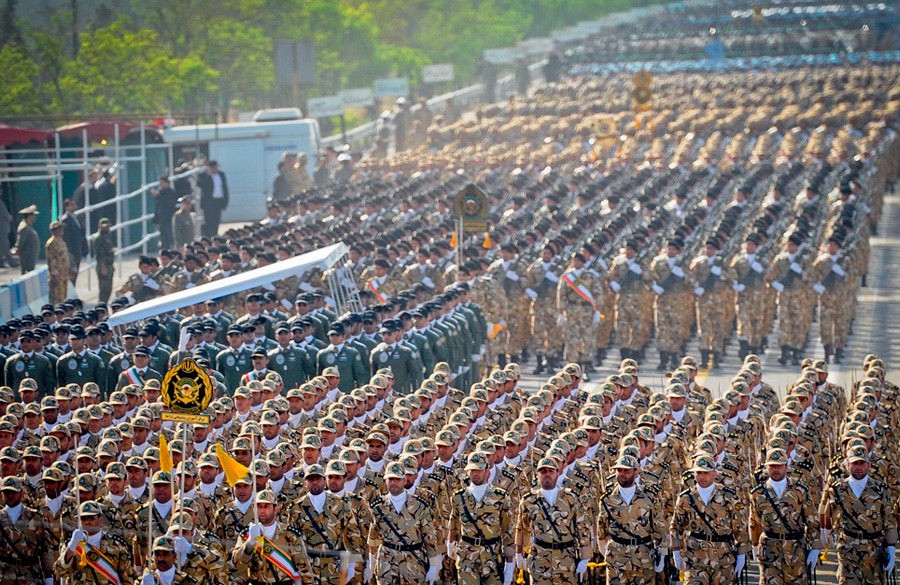
Photograph Source: Hosein Velayati – CC BY 4.0
The Iranian missile attack on two US bases in Iraq is symbolic retaliation for the US assassination of General Qassem Soleimani on 3 January.
Iran’s supreme leader Ali Khamenei said there would be direct action against the US by the Iranian armed forces, and this has now happened. The message is that the Iranian leadership wants to de-escalate the crisis; the initial tweet from the US president Donald Trump after the attack indicates that he wants the same thing.
This does not mean that Iran will not respond later, using proxies to retain deniability and possibly against a US ally, as it did when making a devastating drone attack on Saudi oil facilities at Abqaiq and Khurais on 14 September. But even this type of low level guerrilla warfare is not inevitable, since Iran has shown in the past that it wants to avoid a full-scale war with a militarily superior US.
The assassination of Soleimani clearly came as a shock to Tehran, and will have shaken confidence that Trump will not risk a war under any circumstances. After all, Soleimani paid with his life for miscalculating the degree of American anger over pin-prick Iranian attacks last year.
Iran is more likely to seek to exploit the assassination for political gain, notably by increasing its influence in Iraq and acting through third parties. It will look to the Iraqi government, parliament and political parties to demand that the 5,200 US troops leave the country. They have been there since 2014 for the purpose of helping the Iraqi armed forces fight Isis but, from the moment General Soleimani was killed, have been looking to their own defence.
Isis, seeking to revive itself after its destruction as a de facto state, is one clear beneficiary of the Soleimani assassination.
Even if US troops stay for the moment, they will have a status near to that of hostages since many are in indefensible compounds in the middle of Iraqi military bases. The willingness of Iraqi security to defend American personnel is dubious, as was demonstrated when Iraqi troops in the Green Zone in Baghdad stood aside last week to let pro-Iranian paramilitary marchers enter the US embassy.
Iran will already have made significant political gains from this crisis as long it does not now overplay its hand and seek to humiliate the US. Street protests in Iran sparked by a rise in fuel prices last November led to the security forces killing at least 304 protesters, according to Amnesty International. Who would have expected that the next big street event in Iranian cities would be millions of people gathering for the funeral of the second most important figure in the government that had been doing the killing?
These were mourners, moreover, calling for vengeance against the US; protesters had previously blamed their leadership for wasting resources on foreign adventures such as those carried out by Soleimani. It is impossible to judge how far Isis has been re-legitimised by the recent rising of tensions, but it is in a stronger position domestically to withstand the tough times resulting from US sanctions without the fear of a popular revolt.
In Iraq, there will be many who will be pleased to see the end of Soleimani, who ordered the violent repression of protests over jobs and government corruption since last October; since then, no fewer than 500 protesters have been killed and as many as 20,000 injured.
But Iraqi protesters, too, have had the ground cut from under their feet because US interference in Iraq has just outpaced Iranian interference. Protesters will be accused of attacking a government that is seeking to defend Iraqi sovereignty. No Iraqi leader will want to be portrayed as pro-American. The pro-Iranian paramilitaries can present themselves as staunch patriots and not as Iranian proxies.
Soleimani has done more for his country by his death than he ever achieved during two decades years as head of the Quds Force, the foreign operation arm of Iran’s Revolutionary Guard. From the US point of view, his assassination is proving counter-productive, leaving the government in Iran and its regional allies stronger than before.